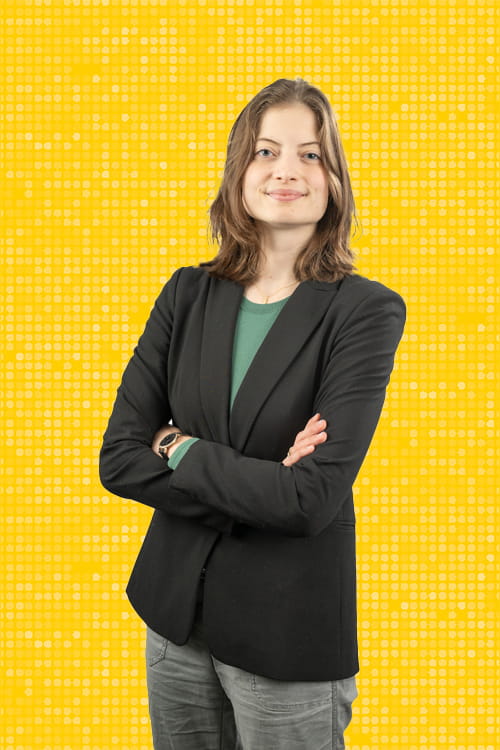
Siduri Beckman, JD student
Appraises prison programs after COVID
“Siduri Beckman is one of those law students that a professor dreams of teaching. Certainly, she is engaged with the material in class. But, more than anything, she is the type of student who works to make connections between what she is learning within the Boyd Law Building and what is happening in the world outside.” -Alison Guernsey, clinical professor of law
Hometown: Philadelphia, Pennsylvania
Faculty mentor/advisor: Alison Guernsey, JD, clinical professor of law and Federal Criminal Defense Clinic director, College of Law.
What is your degree program and anticipated graduation date? JD (May 2025)
Please describe your research: My research focuses on how the COVID-19 pandemic reshaped the programming available at different correctional facilities across the country and how states have reintroduced, adapted, and expanded volunteer programming in the years following the pandemic. Iowa, and every other state, initially responded to the pandemic by closing down volunteer programming entirely. Since 2020, states have reinstated access to volunteer programming, which allows for thousands of individuals, including students, professionals, and retirees, to contribute their skillsets to members of their community who are incarcerated by running a variety of programs, including those related to counseling, education, parenting, substance use, animal training and therapy, arts projects and creative writing, vocational training, money management, and religious services. However, the Iowa Department of Corrections has not reopened volunteer programming at their correctional facilities, which has radically reduced the opportunities available for incarcerated people to work toward rehabilitating themselves as well as essentially eliminated the opportunities available for Iowans to work with their incarcerated fellow community members.
In simple terms, why does this research matter? Volunteers are a major resource for every other state when designing and planning their correctional facilities’ rehabilitative programming. Rehabilitative programming works to address root causes of individuals’ convictions, support incarcerated individuals as they work toward educational and vocational goals, and prepare individuals for successful reentry. Individuals who can engage in rehabilitative programming have much lower recidivism rates, which increases public safety overall.
How soon after starting at the University of Iowa were you able to participate in research? I formally began as a research assistant for Professor Guernsey after my first year of law school, but many professors provided me with resources and assistance in pursuing informal research ideas during my first year.
How has being involved in research made you more successful at the University of Iowa? Working under Professor Alison Guernsey on research related to prison programming and other sectors within the realm of the criminal legal system has deepened my engagement with my doctrinal classes and helped me understand the broader role of an attorney. I believe that a legal education should be an education that teaches a person how translate what happens in legal settings that remain foreign to most of the public into terms that everyone can understand. Only once we have widespread understanding and accessible information about our criminal legal system and the way it operates can we have full civic participation, informed by this kind of research, in our systems of justice.
What are your career goals and/or plans after graduation? I hope to become a public defender and work in Iowa.
Banner location: Downtown—
